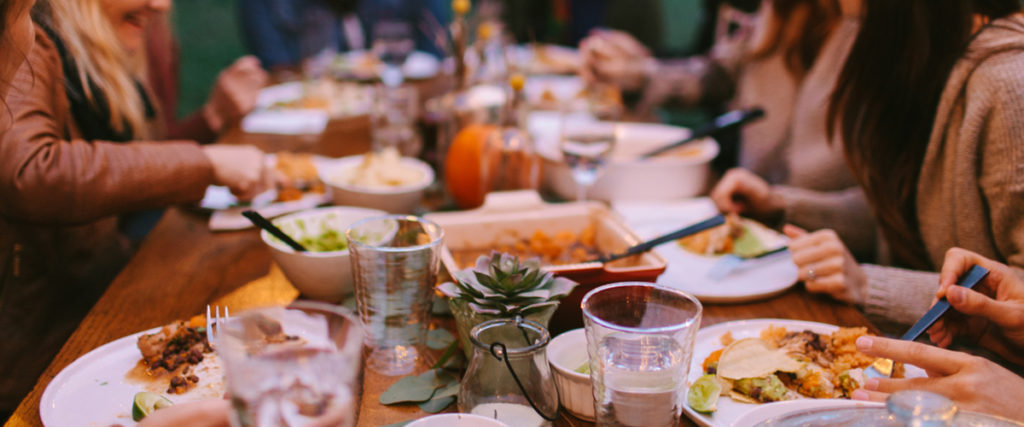Confession: Gratitude doesn’t come naturally to me. I can find the black-winged fly in the pristine white paint. I can sound like an old church organ, creaks and sighs and whines. I can make mental spreadsheets of disappointments like an accountant in a plaid tie.
Maybe I’m not the only one.
I have read about how our brains have a negativity bias. We look first for what’s wrong or a threat. This helps us survive. I am typing in a nicely lit, espresso-scented coffee shop. But should a zombie or deranged clown walk up to the counter and order a latte, I would shift my attention immediately to this phenomenon.
What this means is that recognizing our blessings is learned behavior. A choice. And it’s one that takes some preparation. If we sit down at the turkey table this Thanksgiving and expect to immediately get into a grateful mood, we’re likely to be disappointed. Especially with the twins throwing peas and the dog barking and Uncle Erwin doing political commentary.
In an experiment, two groups of people were given a list of words. One had positive words and the other negative. They were then both given the exact same story about a man. A simple tale. When asked to describe this character afterward, can you guess which group was complimentary and which critical? It all depended on what they’d recently been thinking about.
In other words, we prime our minds by what we put into them. Our perspective on our experiences is, at least in part, predetermined. Perhaps Paul understood that when he said:
Fix your thoughts on what is true, and honorable, and right, and pure, and lovely, and admirable. Think about things that are excellent and worthy of praise.
Philippians 4:8
And because of this, I’d like us to do a little experiment of our own: Let’s start giving thanks now so that we really are ready for Thanksgiving this year. What’s below is a quick and simple countdown that we can go through each day during the week leading up to Thanksgiving:
- November 18: Who in your life are you thankful for? Think of at least one person. Maybe send them a Thank You or Thanksgiving card!
- November 19: What is a memory that brings you joy? Look back and see God’s goodness in it all over again. Write it down in a journal for reflection.
- November 20: How have you seen God answer your prayers this year? Pause and reflect on one “yes” you are living in now.
- November 21: When do you feel joy? Pay extra attention to one happy little moment in your day.
- November 22: Where can you see God’s hand in your life? Consider one way He is taking care of you.
- November 23: Why did Jesus come for us? Revisit His extraordinary love through His Word.
- November 24: Give thanks for all of the above.
We can simply ponder these questions or pull out a pen to make it official. It can also help to talk about the challenge of being grateful with friends and family.
We don’t have to feel guilty if thankfulness doesn’t come easily. God knows we’re human and He loves us that way. He’s the Giver of all good things — including the grace we need on the days when our attitude tries to compete with our gratitude.
Give thanks to the Lord, for He is good! His love endures forever.
Psalm 136:1
P.S. If you get stuck, pie usually helps too. The kind with whipped cream and a crumbly crust (take notes in your recipe journal!). This is my emergency back-up plan: If you can’t make anything nice come out of your mouth then put something sweet in it.

